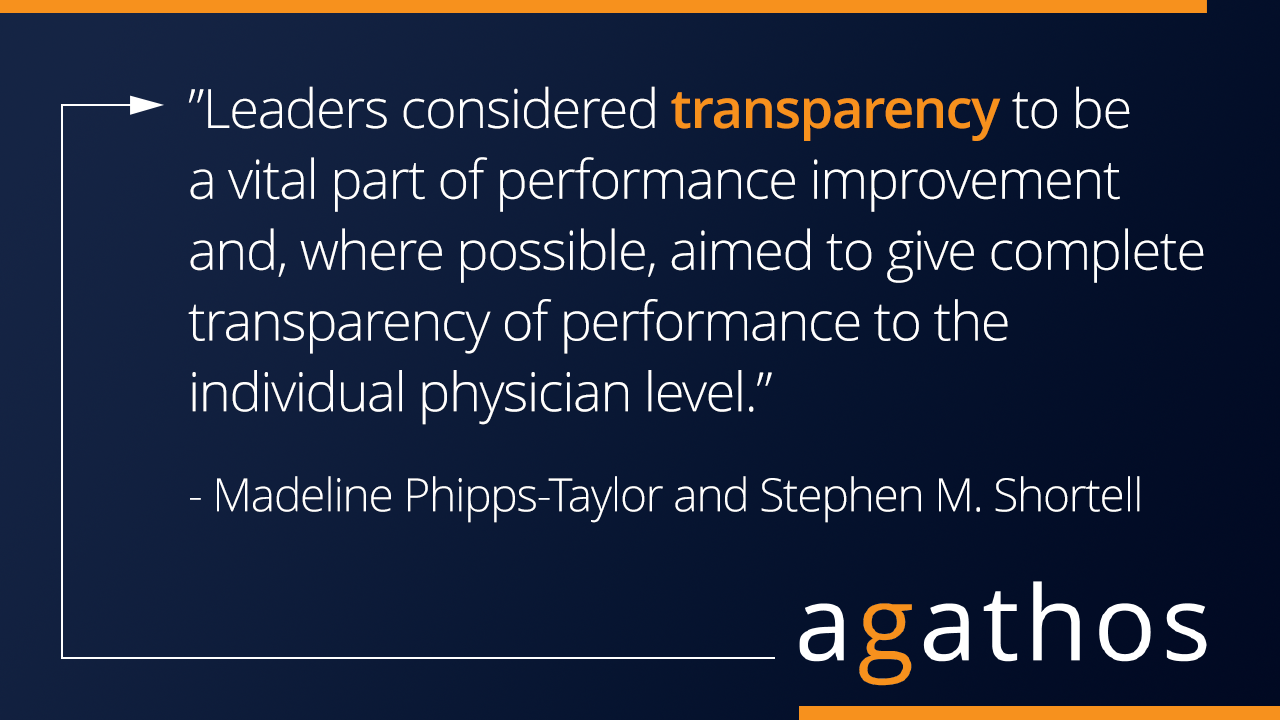ARE YOU TAKING ADVANTAGE OF ALL THE WAYS TO MOTIVATE PHYSICIANS?
- John "JP" Pollard
- 02/15/2024
If you are a healthcare leader, you are quite aware that decisions relating to the cost and quality of care lie in the hands of physicians. You also, particularly yet not exclusively within value-based care arrangements, are quite interested in motivating optimal actions and decisions. When trying to move the needle on these types of metrics, many resort to financial incentives. It seems common sense.
However, behavioral economics research — for example, the study summarized below — increasingly demonstrates other motivators taking priority with physicians. Furthermore, the authors below suggest that “wider issues of physician burnout and low morale, which are becoming increasingly pertinent, are unlikely to be solved by emphasizing only financial incentives.”
The study we are going to dive into is called, “More Than Money: Motivating Physician Behavior Change in Accountable Care Organizations,” by Phipps-Taylor, Madeline., and Stephen M. Shortell. The Milbank Quarterly 94.4 (2016): 832-861
The study considers the common ways ACOs motivate change with physicians, with the goals being lower costs, better outcomes, and a healthier population. While the study acknowledges the impact of financial incentives, the authors also warn, “Financial incentives are only one motivator domain available to effect change, and too great a focus on the money saved or distributed through a shared savings arrangement may crowd out other motivators.”
Perhaps surprisingly, the study found that the two most effective tools were “creating ways to make a greater impact on patients and opportunities to be a more effective physician.” Let’s explore these two motivators in more detail.
Examples of physician motivators
Before we jump to the two specific areas of focus, here are all the various motivators covered in this study. The following table shows the motivational “domains” with examples for each. For the purposes of our discussion we will focus on Mastery and Social Purpose, as they were the two most important domains according to the conclusion of the study.
|
Domain |
Examples |
|
Mastery |
|
|
Autonomy and power |
|
|
Relatedness |
|
|
Social purpose |
|
|
Hygiene factors |
|
|
Financial motivators |
|
Mastery
That this study found mastery as one of the leading motivators for physicians should be encouraging. The authors define mastery as “very broad when applied to physicians and includes the intrinsic joy of learning and using knowledge, teaching others, and seeing personal improvement through performance data.” It was the most positively mentioned motivator amongst physicians in the study.
Some key aspects related to mastery were particularly interesting. For example, “Leaders considered transparency to be a vital part of performance improvement and, where possible, aimed to give complete transparency of performance to the individual physician level” (my emphasis).
Transparency can mean a lot of things, but it often means being very clear about what (or how) physicians are doing and letting them see what (or how) others are doing in comparison. That is, data should be unblinded. About unblinding performance data, one participant summarized, “I believe that physicians get to see what their colleagues are doing. So that’s a stimulant for behavior change over and above dollars, it’s just not to be the laggard or the outlier.” Transparency was used to “promote a positive self-image or to stimulate action by putting an existing positive self-image at risk.”

That last sentence is interesting. Not only is there the positive motivation of performing well at a task, but also the negative motivator of not wanting to be on the bad end of the performance spectrum.
It is not just transparency that is important here. Another participant talked about the competitive nature of physicians, “saying that they embraced ‘coopetition,’ which is the concept of friendly competition.” The authors posit that this leads physicians to strive to “outperform their peers while they all simultaneously improve.”
Our experience at Agathos in delivering data to physicians across the U.S. bears this out as well. Physicians seem to thrive on this type of “coopetitive” (friendly-competitive) information that spurs everyone to get better.
Social purpose
Another non-financial motivator receiving high marks from physicians in this study was “social purpose.” In the health care context, “social purpose” is characterized as “the joy and satisfaction of doing the right thing to help patients and, in some cases, coworkers.” Again, this is heartwarming to see that physicians love their jobs mostly because of the impact they are making.
That said, there were some frustrations about this and other intrinsic motivators mentioned by participants, or at least frustrations that such motivators were inaccessible or moot without better data. “First, the lack of physician-level performance data and poor timeliness of receiving data hindered individual-level performance transparency that could trigger mastery and social purpose domains. A physician at site B noted: ‘Because it doesn’t get down to the individual doctor, it’s very difficult for that doctor to make the connection to his or her performance’.”
That frustration is one of the reasons Agathos has worked so hard to present individualized data in a timely manner (i.e., data regularly refreshed with recent properly attributed case examples). Group-level data rarely helps the individual doctor understand what they specifically can do better to move the needle on that group data. When data is credibly individualized, physicians can better focus attention on which practice areas may warrant reconsideration and modifications.
In summary
The authors summarize how this research can help as we move towards value-based care: “ACO leaders have an opportunity to reshape the dynamics of physician motivation away from a volume-driven financial incentive under fee-for-service payment and toward a broader range of motivators, including greater mastery of medicine and clinical practice, satisfaction in working in a team environment, and greater social purpose in meeting patient needs.”
This study is just one of many that Agathos has referred to as we have invested the last eight years developing our robust clinical data pipeline, libraries of physician-validated insights, and mobile delivery platform to deliver trusted, individualized data to physicians and help them “coopetitively” (we will do our part to canonize this perfectly precise word :) compare themselves to their peers — all towarding nurturing mastery and helping patients.
If you would like to talk more about this research or how we have put this research to work, click the link below.
About Author

John "JP" Pollard
JP has over 25 years of marketing experience ranging from executive and product management roles to leadership at award-winning agencies. He has marketed for American Airlines’ SABRE division, SAP’s Germany-based services organization, and also for startups in supply chain technology and healthcare. Prior to joining Agathos in October 2021, JP was VP of marketing for healthcare consulting firm Nordic Consulting Partners (now Nordic Global).

